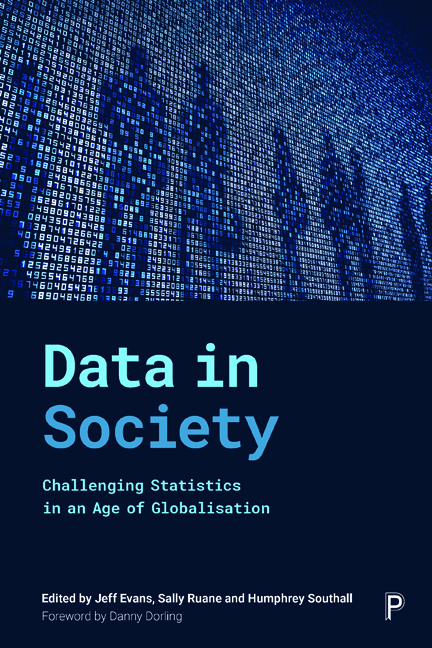Book contents
- Frontmatter
- Contents
- List of figures, tables and boxes
- Notes on contributors
- Foreword
- Preface
- General introduction
- Part I How data are changing
- Part II Counting in a globalised world
- Part III Statistics and the changing role of the state
- Part IV Economic life
- Part V Inequalities in health and wellbeing
- Part VI Advancing social progress through critical statistical literacy
- Epilogue: progressive ways ahead
- Index
6 - Using survey data: towards valid estimates of poverty in the South
Published online by Cambridge University Press: 30 April 2022
- Frontmatter
- Contents
- List of figures, tables and boxes
- Notes on contributors
- Foreword
- Preface
- General introduction
- Part I How data are changing
- Part II Counting in a globalised world
- Part III Statistics and the changing role of the state
- Part IV Economic life
- Part V Inequalities in health and wellbeing
- Part VI Advancing social progress through critical statistical literacy
- Epilogue: progressive ways ahead
- Index
Summary
Introduction
Survey-generated data can be very useful in understanding the situation of different groups of people, but caution is always required with inferences made from such data. For example, in order to promote their products, advertisers typically use selective or self-selected samples which are often revealed under critical scrutiny to be unrepresentative. Governments that have produced much valuable information from surveys have nevertheless failed to update their much criticised methods for surveying immigrants and emigrants. Similarly, our media make very little attempt to check the reliability of many sources upon which they draw.
It has to be acknowledged, nonetheless, that interpreting important social survey data is rarely straightforward. For example, expressed attitudes or reports of behaviours in a survey can be a very poor measure of what people believe or do anywhere. Thus, while many economists rely on expressed attitudes or reported behaviours because they are seen as easier to obtain than data on actual behaviours, it is common knowledge that self-reporting is often an excuse for selfjustification or a denial of disapproved behaviours. For example, it is well-known in the UK – and probably in other countries – that alcohol consumption is grossly underreported (Wilson, 1980). A related example is the difficulty of interpreting trends over time because societal attitudes and sensitivities change: for example, towards gender identities and sexual abuse.
These and other difficulties of interpreting survey data are well understood by critical commentators. In this chapter we focus on a very important but mostly unexamined problem which occurs in Northern countries but is much more serious in developing countries: how household surveys are very limited – as are censuses to some extent – in documenting the extent of real poverty in any country.
Identifying and counting the poorest in the world
The World Bank (2015) estimated in 2012 that 897 million or 12.7% of the global population were in extreme poverty, defined as living on than US$1.90 a day, using purchasing power parity conversion factors (PPPs). Here we challenge the population estimates that are the basis of the World Bank's or the UN's estimates of the rates of extreme poverty, as well as many of the Sustainable Development Goals indicators. Most of these social indicators are estimates from international standardised sample household surveys, which are inadequate at covering poor areas and poor households (Carr-Hill, 2013).
- Type
- Chapter
- Information
- Data in SocietyChallenging Statistics in an Age of Globalisation, pp. 79 - 90Publisher: Bristol University PressPrint publication year: 2019



